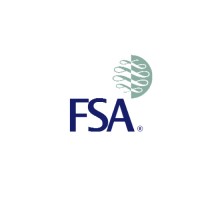
At present, it highlights there are already qualification requirements in the Training and Competence (TC) sourcebook for the following types of specialist advice: long-term care insurance contracts, pension transfers and equity-release mortgages.
“On the same basis, where we are concerned about the potential for certain non-mainstream products to lead to poor customer outcomes, we could introduce a new requirement for an appropriate qualification in addition to the qualification requirement for the mainstream activity (such as advice on packaged products).
Its proposal comes as part of a wide-reaching discussion paper on giving the FSA and its successor the CMPA powers for greater product intervention to help protect consumers.
In the paper, the FSA says the RDR is already increasing qualification standards for all investment advisers to improve competence.
“However, as we suggested in DP07/01, we consider there is scope for more specialist requirements where an adviser is advising on non-mainstream products. The challenge has been to define non-mainstream products.”
It says this approach could be teamed with an earlier suggestion in the discussion paper to prevent non-advised sales of certain products.
“This would ensure customers are only exposed to complex products under the advice process by advisers who can demonstrate a higher level of knowledge and skill in that market by attaining a relevant additional qualification and carrying out relevant additional continuing professional development.
“We welcome views on which activities we might define as specialisms, to be included in any additional qualifications. We encourage the industry to discuss this with us.”
The regulator said: “We could do more to provide early warnings about products we regard as posing the risk of significant detriment. CFEB’s Moneymadeclear pages already highlight high-risk and complex products that should not generally be sold in the retail market.
“We could look to follow this approach and publish a list of products that we regard as being generally unsuitable for the mainstream, retail market.”
It says this list might include, for example, leveraged exchange traded funds and life policy investments.
“Such a list would not ban the products, but would make it clear that the starting point is that these products are unsuitable for most retail customers. We would not expect the product to reach the mass market, would not expect it to be marketed widely and would expect extensive research and justification when making it available.”
The FSA could also consider further “disclosure-based solutions” focused on particular products.
One option, like health warnings on cigarette packs, would be to mandate the warnings to be disclosed on products that are of significant concern to the FSA. This would include the format, font, position and size of those warnings on disclosure documents.
Which? chief executive, Peter Vicary-Smith, said: “We’re pleased to see Lord Turner recognise that the FSA’s ‘hands off’ approach to product regulation needs a serious overhaul.
“If left to its own devices, the industry will spend its energy inventing products and sales practices that fill the balance sheets but don’t deliver for their customers. From pension and endowment mis-selling to PPI and most recently the emergence of identity theft insurance, this hall of shame is evidence enough that a new approach is long overdue.”

















